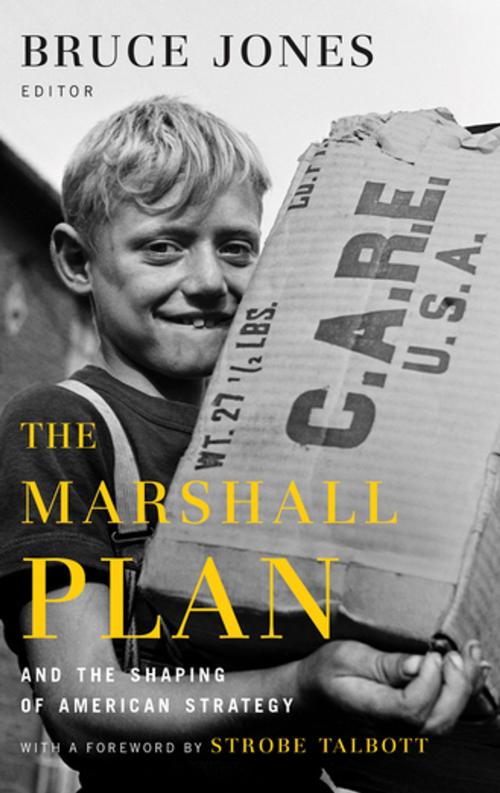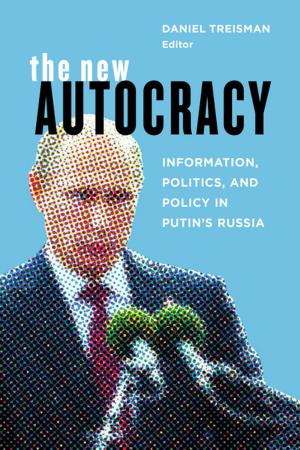The Marshall Plan and the Shaping of American Strategy
Nonfiction, Social & Cultural Studies, Political Science, Government, Democracy, International, International Relations| Author: | Will Moreland | ISBN: | 9780815729549 |
| Publisher: | Brookings Institution Press | Publication: | February 7, 2017 |
| Imprint: | Brookings Institution Press | Language: | English |
| Author: | Will Moreland |
| ISBN: | 9780815729549 |
| Publisher: | Brookings Institution Press |
| Publication: | February 7, 2017 |
| Imprint: | Brookings Institution Press |
| Language: | English |
How the United States helped restore a Europe battered by World War II and created the foundation for the postwar international order
Seventy years ago, in the wake of World War II, the United States did something almost unprecedented in world history: It launched and paid for an economic aid plan to restore a continent reeling from war. The European Recovery Plan-better known as the Marshall Plan, after chief advocate Secretary of State George C. Marshall-was in part an act of charity but primarily an act of self-interest, intended to prevent postwar Western Europe from succumbing to communism. By speeding the recovery of Europe and establishing the basis for NATO and diplomatic alliances that endure to this day, it became one of the most successful U.S. government programs ever.
The Brookings Institution played an important role in the adoption of the Marshall Plan. At the request of Arthur Vandenberg, chairman of the Senate Foreign Relations Committee, Brookings scholars analyzed the plan, including the specifics of how it could be implemented. Their report gave Vandenberg the information he needed to shepherd the plan through a Republican-dominated Congress in a presidential election year.
In his foreword to this book, Brookings president Strobe Talbott reviews the global context in which the Truman administration pushed the Marshall Plan through Congress, as well as Brookings' role in that process. The book includes Marshall's landmark speech at Harvard University in June 1947 laying out the rationale for the European aid program, the full text of the report from Brookings analyzing the plan, and the lecture Marshall gave upon receiving the Nobel Peace Prize in 1953. The book concludes with an essay by Bruce Jones and Will Moreland that demonstrates how the Marshall Plan helped shape the entire postwar era and how today's leaders can learn from the plan's challenges and successes.
How the United States helped restore a Europe battered by World War II and created the foundation for the postwar international order
Seventy years ago, in the wake of World War II, the United States did something almost unprecedented in world history: It launched and paid for an economic aid plan to restore a continent reeling from war. The European Recovery Plan-better known as the Marshall Plan, after chief advocate Secretary of State George C. Marshall-was in part an act of charity but primarily an act of self-interest, intended to prevent postwar Western Europe from succumbing to communism. By speeding the recovery of Europe and establishing the basis for NATO and diplomatic alliances that endure to this day, it became one of the most successful U.S. government programs ever.
The Brookings Institution played an important role in the adoption of the Marshall Plan. At the request of Arthur Vandenberg, chairman of the Senate Foreign Relations Committee, Brookings scholars analyzed the plan, including the specifics of how it could be implemented. Their report gave Vandenberg the information he needed to shepherd the plan through a Republican-dominated Congress in a presidential election year.
In his foreword to this book, Brookings president Strobe Talbott reviews the global context in which the Truman administration pushed the Marshall Plan through Congress, as well as Brookings' role in that process. The book includes Marshall's landmark speech at Harvard University in June 1947 laying out the rationale for the European aid program, the full text of the report from Brookings analyzing the plan, and the lecture Marshall gave upon receiving the Nobel Peace Prize in 1953. The book concludes with an essay by Bruce Jones and Will Moreland that demonstrates how the Marshall Plan helped shape the entire postwar era and how today's leaders can learn from the plan's challenges and successes.















